Fake News and Facebook
Photo Credit: The BBC
February 3, 2017
On November 17th, President Obama declared, “If we are not serious about facts and what’s true and what’s not … if we can’t discriminate between serious arguments and propaganda, then we have problems.”
With the creation of the internet, democracy has been put into our hands in a new way. The internet ignores wealth, social position, and power. Anyone can write what they want and it can be seen by potentially hundreds of thousands of people. Although it has allowed you and I to speak louder, the internet has also allowed a bigot or fool to have the same power. In the recent election, this has reached unprecedented levels. The spread of misinformation reached such a high degree that some are even blaming Russia for propagating it. Others are claiming that it is what elected Trump.
Facebook’s Role
As a part of the internet ecosystem, Facebook plays a major role in giving the power to the people by helping to disseminate their message. Facebook has 1.79 billion users, with 1.18 billion logging on daily. According to Pew Research, it reaches 67% of adults and is a source of news for 44% of Americans. Recently, fake news outlets have used Facebook as a means to spread their lies like wildfire.
Facebook is at the forefront of the onslaught of accusations for fake news because of the fertile environment it provides for fake news. Their algorithms can expose fake news to a wide audience. There has been a lot of fake news circulating and it gets a lot of traction. For example, there was an article circulating about Pope Francis endorsing Trump, Trump calling Republicans “the dumbest group of voters in the country”, an FBI agent who was suspected in the leaks of Hillary Clinton’s emails being dead, Donald Trump won the popular vote, and many more. In fact, there is a business that thrives off fake news both within the US and even from places like the Balkans. They claim that they make $5,000 to $30,000 a month.
The most shocking discovery was from Buzzfeed. They conducted an analysis of the top five fake and mainstream election stories in the three months leading up to the election. They found that the fake news stories generated 988,000 more engagements than the mainstream stories. This shows how fake news can compete with the truth and even outperform it. Even though this was during a heated election season, the problem is always there, just not at such a high degree.
Response from Facebook
Fake news is a direct threat to Facebook’s reputation as a neutral source in politics and media. That reputation is vital to Facebook as a company. Without the trust of its users, less and less people will want to engage with it since it doesn’t show real news. They may go to social media sites that they trust, resulting in a financial loss for Facebook. It needs to avoid any and all controversies in order to maintain its reputation and profits.
In response to the criticism, Mr. Zuckerberg said, ”more than 99% of what people see is authentic. Only a very small amount is fake news and hoaxes… Overall, this makes it extremely unlikely hoaxes changed the outcome of this election in one direction or the other… This is an area where I believe we must proceed very carefully though. Identifying the “truth” is complicated. While some hoaxes can be completely debunked, a greater amount of content, including from mainstream sources, often gets the basic idea right but some details are wrong or omitted.”
Despite his comment, he probably knows Facebook’s impact. He even said in the same post that “we [Facebook] helped more than 2 million people register to vote.” If he fails to acknowledges otherwise, he is quite out of touch with reality, or even worse, with rationality.
It is understandable that he doesn’t want to acknowledge Facebook’s role in the controversy. Profits are at stake. If Facebook begins to censor material, then it will most likely incur backlash, leading to a decrease in its base. Also, fake news brings a lot of engagement and views to Facebook. Even greater than a financial incentive, is its responsibility. If he acknowledges that Facebook shapes how news is distributed, reported, discussed, and perceived, there is an implication that Facebook is responsible for how people use it. Furthermore, he’d be acknowledging that Facebook is a media organization, something that he’s been trying to defend Facebook’s innocence of multiple times. He insists that Facebook is a tech company first.
The Solution So Far
The question remains, how far will Facebook go to appease its critics?
Mr. Zuckerberg’s answer is that “We [Facebook] do not want to be arbiters of truth ourselves, but instead rely on our community and trusted third parties.” Facebook answered the question more completely on Nov 14 when it expanded its Audience Network policy to include fake news sites as part of the misleading or illegal content that doesn’t receive ad revenue. This was soon after Andrea Faville, a Google spokeswoman, announced, “we [Google] will restrict ad serving on pages that misrepresent, misstate or conceal information about the publisher, the publisher’s content or the primary purpose of the web property.” In addition to this, Google has already been labeling fact- checked articles in the Google News results.
So far, cutting funding to fake news websites has been the biggest response from Facebook. It makes sense since fake news can generate a lot of money as we can see with teens in the Balkans and Paul Horner. Many say that it is a step in the right direction since it cuts the financial incentive of fake news sites.
Others say it is a step in the wrong direction. First, they claim that the censorship of fake news could be abused. Fake news is a broad term. It could be interpreted in a variety of ways. The bias of a person who is determining the fake articles is unrestricted and could lead to unfair censoring. Second, where is the line drawn between how fake a news can be. Most news stories aren’t black and white. They have some false information and a lot of truth or vice versa. We can all agree that some of the fake news articles on Facebook are completely wrong. But, that isn’t where the abuse will happen. We can see this most clearly in a Buzzfeed News analysis which looked at three big right-wing Facebook pages and three large left-wing pages. They found that the right ones published false information 38% of the time, while the left ones published only 19%. On top of this being terrible, it further blurs the lines between real and fake news since the rest of the content those Facebook pages produced was mostly correct. That is the majority their products are true. You can’t label either of these strictly fake news sites. Third, there is little transparency. There is no way to hold Facebook accountable. They could just be saying this to look good but in reality be doing nothing about it, or they could be abusing it and only a few people would know. Fourth, freedom of expression has long been one of the core tenets of American democracy. It’s what made America the global superpower and spread democracy around the globe. Such a change as this can be a direct threat to freedom of expression.
More Changes Are Improbable
Due to its wide-ranging effects, many have suggested possible solutions.
- Algorithms – Create algorithms to find clickbait headlines and fake news. It is plausible as Facebook has algorithms for finding other things that it doesn’t want on its site like hate speech and pornography. However, fake news is a lot harder to determine. First, the algorithm may have some bias engineered into it. Furthermore, the algorithm doesn’t prevent Facebook from getting any blame. They will still be accountable for the results of the algorithm. Second, where do we draw the line as most articles are half-truths. Third, there will be exceptions that will get unjustly stopped.
- Add Dislike Button – This way, the company can leave the public to decide whether something is good or not which would take a lot of the blame off Facebook. Also, since Facebook is so giant, it won’t need to employ an army of fake news finders or an algorithm. However, the internet can be a hateful place where people dislike things that are true.
- Modify the System – Since it already allows users to flag posts, Facebook could add a pop up warning when an article gets a certain number of flags. This might get more people to read the article and verify it themselves. It also slows the spread of fake news.
- Verification Sign – Add a verification sign to Facebook pages that are credible sources for news. However, this can take away the equality that the internet gives. It takes away some power from smaller organizations and the citizen journalist who can break a story before a big, credible news organization even hears about it. Also, the same question of where to draw the line also comes into play since most pages will spread articles that are true with a few false ones. Lastly, this would anger many people who are loyal followers of a page that doesn’t get verified.
- Fact Check – Since fact checking every article would be impossible, Facebook could just fact check the articles on the News Feed. There could be a Facebook page of articles that they find false so that there is transparency. They could even add an opt-in quality filter which wouldn’t show articles that an algorithm or a small task force has determined to be fake. However, by employing a small task force or algorithm to fact check, Facebook is still determining what to show which could lead to accusations of bias.
- Facebook could display the article in its feed and another article right next to it that would debunk or give a contrary opinion. First, it would decrease any blame since Facebook isn’t the one that is doing the fact checking. Second, it allows people to expand their bubble and become better informed by getting both sides of a story. Third, there would be a greater incentive for credible news organizations to debunk fake news since they would be placed right next to an article that is in the News Feed. However, determining which debunking or contrary article is shown can be extremely tough. It would be hard to find the right article since there would be many articles competing for that spot. Furthermore, it would be hard to choose the best article since it may come from lesser known sources.
One can further call into question if there will be any changes made based on Facebook’s history.
Facebook used to have a team of about 15-18 people and they wrote the headlines that would appear in the Trending Topics. In May, Facebook faced allegations from an anonymous former Facebook contractor who claimed that his ex-coworkers had anti-conservative opinions and they were tampering with what appeared on its “Trending Topics”. Facebook denied the anonymous allegations, yet they fired the whole team of people who were working on the Trending Topics and switched it to an algorithm. In trying to keep their neutral image, they even met with conservative leaders like Glenn Beck. With such a strong response over an anonymous allegation, Facebook would be reluctant to switch to any human editors.
In the same month, Facebook launched Instant Articles. It is a mobile platform exclusively for distributing news content. If people want to get news, they can go there.
Back in August, Facebook announced that they would reduce the amount of clickbait headlines that appear in its News Feed. Although this has led to improvements, there are still a few exceptions that illustrate how difficult a task Facebook has on its hands.
Is there a need for changes?
Facebook doesn’t deserve all the heat that it gets. We shouldn’t slander the whole company just because of a minority of bad people on it. People may get their news from it, but there is a decent amount of people who use it for news and get more news from other sources. Furthermore, according to Pew Research, the majority of people on Facebook have an online network that has “a mix of people with a variety of political beliefs.” Moreover, a recent study by Columbia University and the French National Institute found that 59 % of links that are shared on social media are never actually clicked. It shows that people aren’t actually reading any of the content of the posts. It is reasonable to ask how much of the fake news is actually remembered by people, especially in a world with so much information and distractions.
Despite the accusations, there are already a lot of options for Facebook users. Facebook has allowed users to flag fake news that appear in their feed, which will decrease the frequency that the flagged content appears in others’ news feed and the amount of news from that source in your feed. You can also use this feature to go beyond your bubble by liking things from sources contrary to your viewpoint. Furthermore, you can stop posts from your friend who always likes political stuff but remain friends with the person. You can even stop posts from a certain account so that you can still get the posts from your friend. Regarding the News Feed, you can set it to “most recent” instead of “top sites” to get a more accurate picture of what is actually happening. Moreover, you can see what Facebook is leaving out of the top stories it shows you.
If you still feel like Facebook is evil, you can just deactivate your account and stop going on it. If you really think Facebook is an abomination, you can just delete your account. You can download all the data from your account to your computer. Just go to “Settings”, then “General Account Settings”, then click “Download a copy of your Facebook data”. You can find more ways of configuring your Facebook profile here.
What You Can Do
Since Facebook won’t solve all the problems, it is on the audience to make sure that they able to determine what is fake and not fake. Even beyond Facebook, Google doesn’t sort search results based on reliability, so learning internet literacy is good in general.
Critical Thinking skills are crucial to the process of discerning what is true and false.
A good tip to keep on hand is that if a topic evokes a strong emotional reaction, then you should do more research on said topic.
Always read beyond the headline. Examine the author’s credentials, background, and motivation. Look for any contact information. You could also examine any economic, legal, and social issues relating to the author. Look up the author’s track record. Does he or she have a tendency to publish false articles? Furthermore, examine the website. Look for dates, odd URLs, a contact/about us page, what type of ads pop up or are shown on the sides, and where it is published.
Scrutinize the sources. Examine the author’s sources. Look for the source’s validity, authority, and any bias it may have. Get another opinion from the comment section. Compare information from a variety of sources. See if there are any trusted news outlets also reporting on it.
Read it closely. Spelling and grammar are indicators of the quality that the article has. Look at how deep into the topic it goes. Look at the diction and pick out biased words. You can look at the structure and logic of the supporting arguments.
There are many websites that you can use to fact check like snopes.com or politifact.com. There are even websites like allsides.com which show multiple perspectives on a story.
There is even a bunch of resources put out by colleges for discerning what is true and false. For example, UC Berkeley, Purdue, Cornell, and University at Albany all have good resources. There is even a resource that has steps for every letter of the alphabet that you can take to verify articles
People are already creating options for others to help them determine fake news. There are different chrome extensions that help root out fake news like FiB, B.S. Detector, and Fake News Alert. There are places like Checkdesk where you can work with others to verify posts.
You can even find websites like realorsatire.com and fakenewswatch.com which have a convenient list of websites that they say are fake. However, always be careful of places who list of sites as fake since they can be biased. They also imply that the whole site is completely wrong instead of just a few articles.
Using a variety of these options will help you not be duped by fake news.
Since we don’t have all the time in the world to do every one of these options, have a really short checklist like who is the author and what are the sources and use this short checklist often. For really world-altering or conspiracy theories, you should use more than just a few.
Conclusion
Facebook is an important company with a very important decision in its hands. Few companies rival the power it has to influence us. Knowing who we are friends with, what we like, and what we do, it has an intimate relationship with each individual of its billion-member audience. As a neutral tech company that also wants to be a source of news, Facebook has to ask itself where the line between a news company and a tech company will be drawn. So far, it has chosen to remain a tech company. As long as it does, we won’t see much change to the problem of fake news which jeopardizes its reputation. Going down a middle road between tech and news company is hard. Once a company begins to take down false articles, what distinguishes it from being a news site. It is quite a dilemma of not wanting to be a news organization while making decisions like a news organization. Moreover, in trying to be neutral, they have made an editorial decision. Many say it’s a pretty bad decision since it has led to fake news being witnessed by millions of people.
There is no easy solution. The stakes are high for Facebook and its audience. As a private company, Facebook can choose whatever it wants to do. Whether it chooses something detrimental is up to time.
Works Cited
http://www.shmoop.com/video/web-literacy-credibility-of-web-sources-
http://www.ala.org/acrl/standards/informationliteracycompetency
http://www.vox.com/new-money/2016/11/6/13509854/facebook-politics-news-bad
https://purl.stanford.edu/yy383km0067
https://sheg.stanford.edu/home_page
http://www.huffingtonpost.ca/kolby-solinsky/fake-news-facebook_b_13233646.html
http://www.shirky.com/weblog/2009/03/newspapers-and-thinking-the-unthinkable/
http://www.schrockguide.net/critical-evaluation.html
https://www.buzzfeed.com/craigsilverman/partisan-fb-pages-analysis?utm_term=.gkZ5v9BOAN#.rby6mKGR1Z
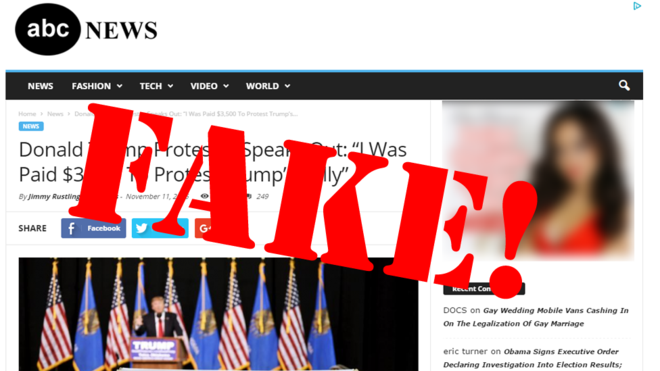

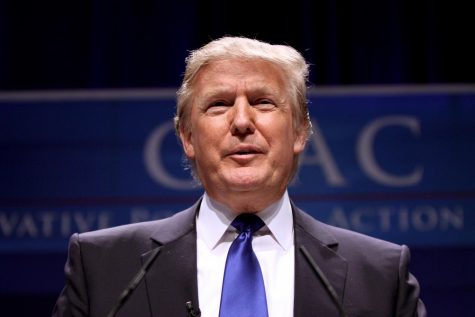




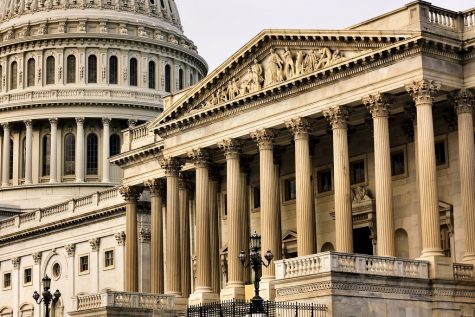
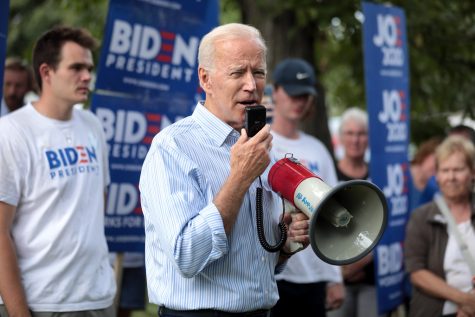
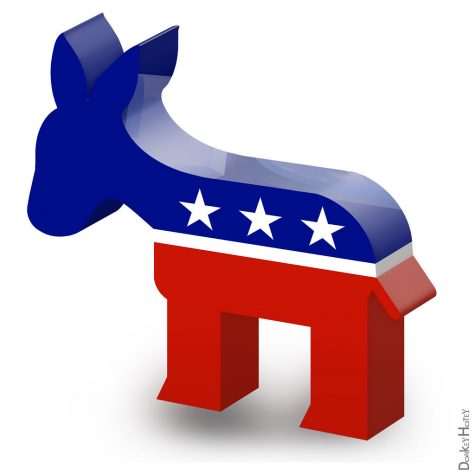
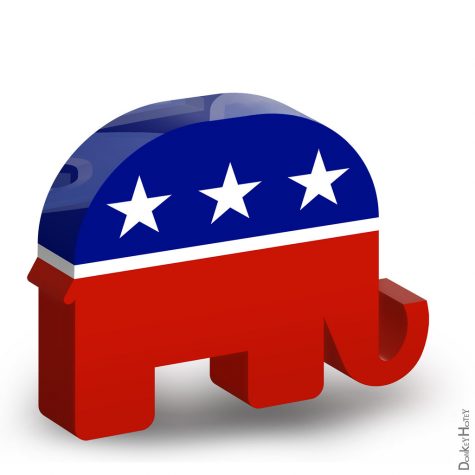
Iona Fernandes • Feb 17, 2017 at 3:16 pm
So proud of you, Ben! It looks like you have done extensive research.